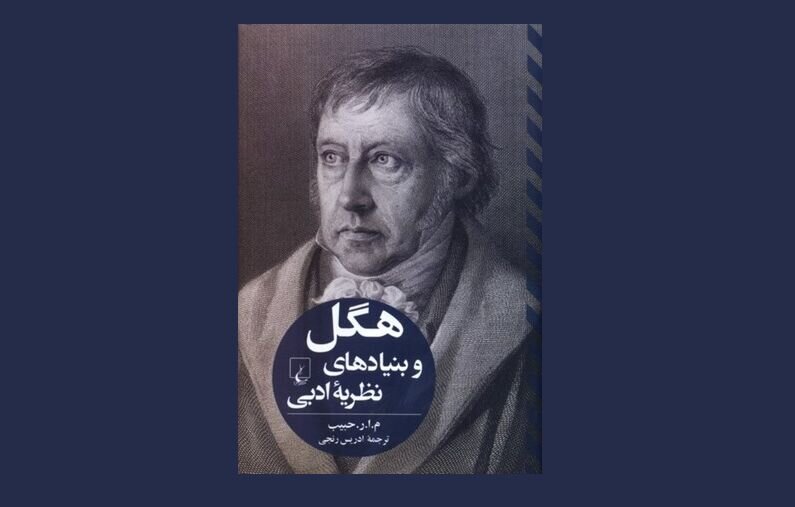“Hegel and the Foundations of Literary Theory” published in Persian

TEHRAN – The Persian translation of the book “Hegel and the Foundations of Literary Theory” written by M. R. Habib has been released in the bookstores across the country.
Edris Ranji has translated the book and Qoqnoos Publishing House has brought it out in 520 pages, IRNA reported.
Do the various forms of literary theory - deconstruction, Marxism, new historicism, feminism, post-colonialism, and cultural/digital studies - have anything in common? If so, what are the fundamental principles of theory? What is its ideological orientation? Can it still be of use to us in understanding basic intellectual and ethical dilemmas of our time? These questions continue to perplex both students and teachers of literary theory.
Habib finds the answers in theory's largely unacknowledged roots in the thought of German philosopher Hegel, whose insights continue to frame the very terms of theory to this day. Habib explains Hegel's complex ideas and how they have percolated through the intellectual history of the last century.
Originally published in 2019, this book will interest teachers and students of literature, literary theory, and the history of ideas, illuminating how our modern world came into being, and how we can better understand the salient issues of our own time.
Georg Wilhelm Friedrich Hegel (1770-1831) was a German philosopher and a major figure in the tradition of German idealism. His influence on Western philosophy extends across a wide range of topics—from metaphysical issues in epistemology and ontology, to political philosophy, to the philosophy of art.
Hegel was born in Stuttgart. His life spanned the transitional period between the Enlightenment and the Romantic movement. His thought was shaped by the French Revolution and the Napoleonic wars, events which he interpreted from a philosophical perspective. His academic career culminated in his appointment to the chair of philosophy at the University of Berlin, where he remained a prominent intellectual figure until his death.
Throughout his work, Hegel strove to correct what he argued were untenable dualisms common in modern philosophy. His principal achievement was the development of a comprehensive philosophical system, often termed absolute idealism, to account for reality as a unified whole.
Hegel's characteristic procedure, often termed dialectical or speculative, assesses concepts and forms of consciousness according to their own internal criteria, revealing their contradictions and one-sidedness. This leads to their resolution in a higher, more comprehensive unity, which both cancels and preserves the initial stage. His major works, including the “Phenomenology of Spirit” (1807) and the “Science of Logic” (1812–1816), detail this systematic vision. In his political philosophy, he famously asserted that “world history is progress in the consciousness of freedom.”
Hegel's influence has been profound and divisive. After his death, his followers split into rival “Right” and “Left” Hegelian camps. The Left, including Ludwig Feuerbach and Karl Marx, adapted his dialectical method for their materialist critiques of society. In the twentieth century, his thought was further developed in traditions such as French Hegelianism and critical theory, and became a major point of reference for existentialism.
SS/
Leave a Comment